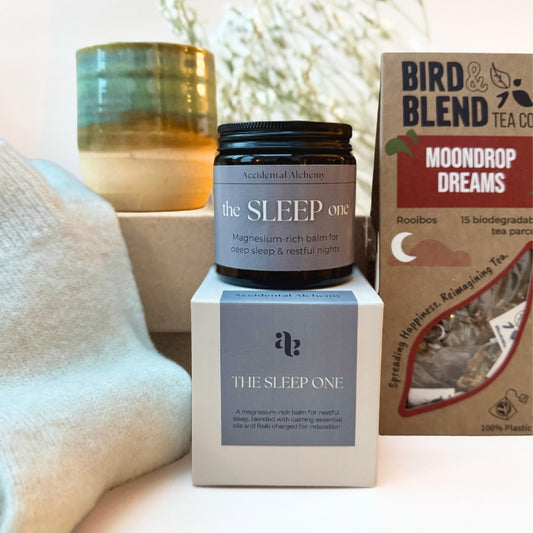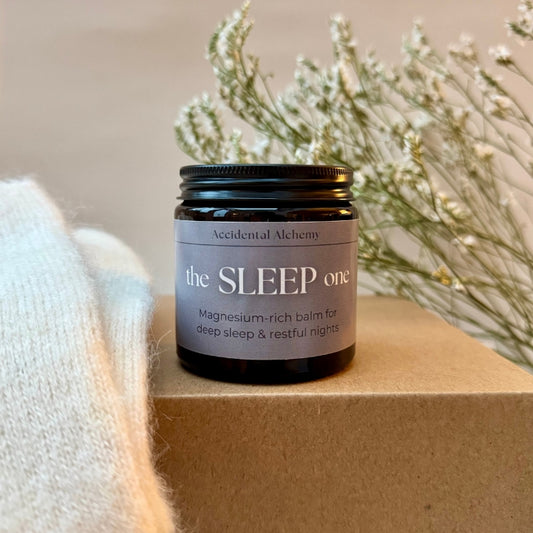
Make Sleep a Priority in 2025: Simple Tips for Restful Nights and Energised Days
Share
As we step into 2025, improving sleep has never been more essential. With our increasingly hectic lives and the constant pull of technology, many of us struggle to get the quality rest we need. But understanding the science behind sleep can transform not just how we sleep, but also how we feel during the day. I’ve explored various approaches, including reading books like Why We Sleep by Matthew Walker, listening to Andrew Huberman, and testing different methods to improve my own sleep.
In this article, I’ll share practical tips and strategies that can help you enhance your sleep environment and create healthier bedtime routines. Whether you’re dealing with insomnia or just want to improve your sleep quality, these insights will help you get the restorative rest you deserve. Let’s dive into the world of sleep improvement and uncover the secrets to waking up refreshed and energised.
How to Improve Your Sleep in 2025
Improving sleep quality is all about creating healthy habits. These strategies have worked for us, and we hope they’ll help you too!
1. Create a Consistent Sleep Schedule
Going to bed and waking up at the same time each day helps regulate your internal clock and supports overall health. Set a reminder to signal it’s time for bed. For example, I use an alarm labelled “Sleep? 💤” that reminds me when it’s time to disconnect from screens. A few smart plugs in the house can help, too—like the one that automatically turns off the TV at 9:30 p.m.! It’s a little tough love, but it works.

2. Set Up a Calming Bedtime Environment
Dim lighting, comfortable bedding, and a cool room temperature contribute to an optimal sleep environment. We’ve found that keeping the room cool works wonders (but we’ve recently started using heating blankets so we aren’t climbing into cold sheets at the end of the day!). Another small change we made was moving our phone chargers to the hallway, which keeps us from reaching for screens late at night.
3. Limit Screen Time (Especially Netflix)
Streaming platforms like Netflix are designed to keep you hooked. The more you watch, the harder it is to unwind and fall asleep. A simple fix: set your TV to automatically turn off at a specific time. If you can, try setting your WiFi to switch off automatically in the evening to help you disconnect from the digital world.
4. Wind Down Before Bed
A good wind-down routine is key. After a long day, it’s easy to turn to Netflix to unwind, but light exercise can have a similar calming effect. We’re planning to swap one evening a week to play board games, chat after dinner, or take a walk with our dog, Evie. It’s a great way to unwind and transition into sleep mode.

5. Incorporate Relaxation Techniques
Mindfulness, meditation, or deep breathing exercises can help alleviate stress and prepare your mind for sleep. I personally love using an app called State for deep breathing. It reminds me to breathe deeply throughout the day and has helped improve my heart rate variability and stress levels. It’s simple but incredibly effective.
6. Monitor Caffeine and Alcohol Intake
Limiting caffeine and alcohol—especially in the hours before bed—can significantly improve sleep quality. In 2024, I gave up alcohol for the first half of the year, and it made a noticeable difference in my sleep. Coffee is my weakness, so I’m limiting it to two cups daily, none after 2 p.m., to improve my sleep quality.
7. Prioritise Magnesium for Sleep
Magnesium is essential for relaxation and regulating sleep patterns. Foods rich in magnesium, like almonds, spinach, and pumpkin seeds, can help. But don’t forget about the power of transdermal magnesium (applied through the skin). This method allows the body to absorb magnesium more efficiently, helping to ease muscle tension and promote restful sleep. We recommend The Sleep One—a magnesium-based balm designed to do just that.
Side Note: What Works for Me Might Not Work for You!
Everyone’s sleep needs differ, so experiment and find what works best for you.
Bonus Tip: Nasal Congestion Relief
At this time of year, congestion can really disrupt sleep! So here’s a bonus tip—a technique that can help clear your airways naturally.
Take a normal breath in and out, then gently pinch your nose and hold your breath. Tilt your head to the left, then right, forward and back, then return to the neutral position. Release your nose and breathe gently through it. This helps dislodge mucus and promotes better airflow, which is especially useful when you have a cold.
Sleep Well!
Dan






